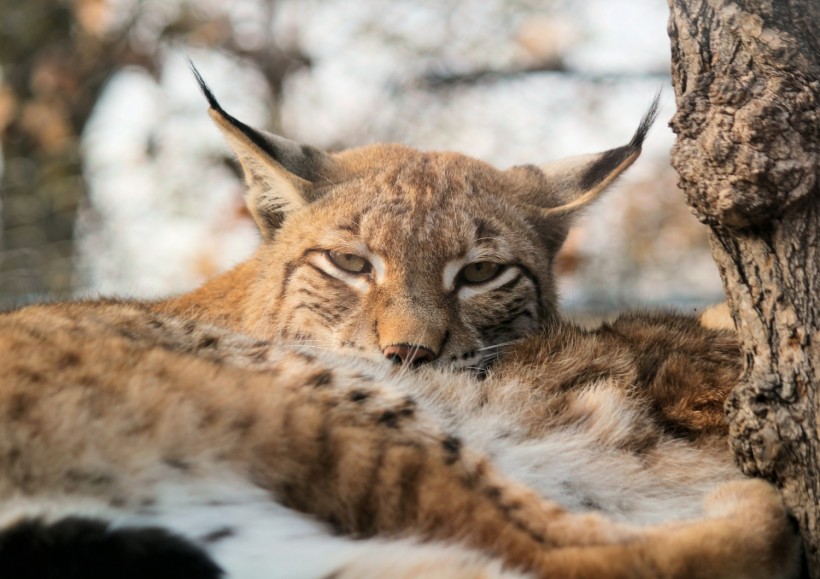
Zoology
Zoology is the scientific study of animals, encompassing topics related to the biology, behaviour, structure, evolution, classification, and distribution of animals.
Zoology is the scientific study of animals, encompassing topics related to the biology,... View more
Iberian Lynx: ‘Endangered Species’ Status Reversed From Near Extinction After Decades of Reproduction
-
Iberian Lynx: ‘Endangered Species’ Status Reversed From Near Extinction After Decades of Reproduction
The Iberian lynx (Lynx pardinus) is a wild cat species endemic to the Iberian Peninsula region, located in southwestern Europe. Over the past 200 years, the population of these predatory cats has significantly declined due to various natural and anthropogenic factors.
Some of these causes include the decrease of their prey, habitat loss, and collisions with speeding vehicles, according to the World Wildlife Fund (WWF).
Despite the Iberian lynx population decline, the past several decades saw widespread conservation efforts toward the endangered species. With less than 100 individuals left in 2002, their population has gradually increased to more than 1,000 as of May 2023, wildlife authorities reported.
Recently, the International Union for Conservation of Nature (IUCN) announced the Iberian lynx is saved from near extinction.
Thanks to lynx conservation efforts such as reproduction and protection projects, the disappearing big cat species native to Spain and Portugal are making a comeback.
However, environmental and ecological threats, including climate change and decreasing food resources, remain a significant factor in the survival and reproduction of the Iberian lynx species. Regardless, efforts to preserve the said wild animals have continued.
Iberian Lynx Population Decline

(Photo : Photo by Dušan veverkolog on Unsplash) It was previously thought that the Iberian lynx population was at the edge of extinction because of their dwindling numbers. According to the WWF, below are some of the threats to the wild cats:
- Decreasing food base
- Car hits or vehicle collisions
- Habitat loss and degradation
- Illegal hunting
- Climate change
In terms of available food resources, the Iberian lynx in Europe has been struggling; this is because epidemics like myxomatosis and hemorrhagic disease have affected rabbit populations across the European region throughout the years, the WWF explains. Moreover, the expansion of human infrastructure like dams, roads, and railways has contributed to the damage or destruction of the wild cats’ habitats.
Also Read: Iberian Lynx: Oldest Ancestor Recently Found In Spain, Researchers Say
Saving an Endangered Species
In a recent press release, the IUCN announced the changing of the conservation status of the Iberian lynx from endangered species to vulnerable under its IUCN Red List of Threatened Species. The organization attributed the Iberian lynx rebounding to the continued, sustained conservation efforts. The announcement mentioned that 62 mature Iberian lynxes in 2001 increased to 648 individuals in 2022.
This significant growth in their population, which includes young and mature lynx, is not estimated to be more than 2,000 individuals. Previous estimates by scientists of Iberian lynx populations in recent years have shown the steady progression of their once-disappearing species. This pattern only shows that conservation efforts of the wild cats have been effective for more than 20 years.
In 2002, the conservation authorities classified the L. pardinus species as “critically endangered” and upgraded the Iberian lynx conservation status to “endangered” in 2015, according to the International Society for Endangered Cats. This upward trend continued in 2019 and even after the 2020 COVID-19 pandemic, which saw the flourishing of wildlife even in human population centers.
Related Article: Iberian Lynx, Source of Genes that Live on in Over 900 Felines, Dies at 20 – Spain
© 2024 NatureWorldNews.com All rights reserved. Do not reproduce without permission.
Sorry, there were no replies found.
Log in to reply.
